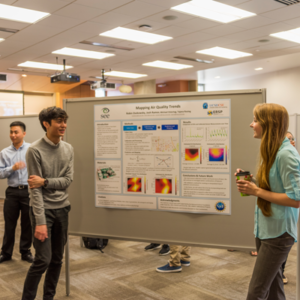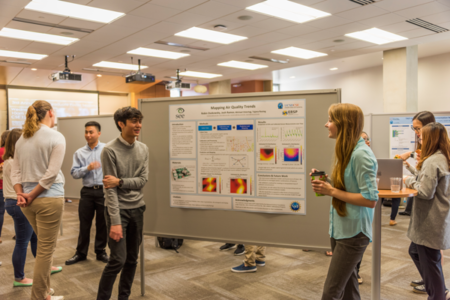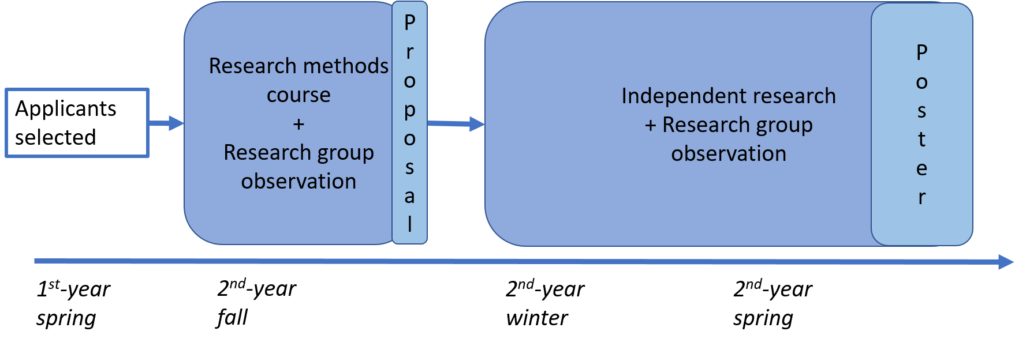
In the August 2017 issue of Computing Research News, published by the Computing Research Association (CRA), CSE associate teaching professor Christine Alvarado has an excellent article about UC San Diego's Early Research Scholars Program and how it engages undergraduates in research. Titled "Expanding the Pipeline", Alvarado notes that "engaging undergraduates in research can be an effective way to increase their confidence, perception of science and sense of belonging." Yet even when there are opportunities, she argues, incoming students may not have the background, training or support to take full advantage of them -- and such issues "are particularly acute for women and other underrepresented groups in computer science as they tend to have less pre-college computer science experience."

In creating CSE's Early Research Scholars Program (ERSP), the department focused on providing early-research opportunities to women and students from racial and cultural groups that are underrepresented in computer science. "Students apply during the spring of their first year at UC San Diego, and they are selected based on their academic performance in their early classes, their motivation to participate in the program, and their understanding of the issues facing students from minority groups in computer science," writes Alvarado. "They are grouped into teams of four and matched with a research mentor, who is a faculty member or researcher in CSE (and who is usually assisted by one or more graduate students or post-docs)."
During the fall, the students take an introduction to CS research course and observe their mentor's research group meetings. They also work in the fall with their research mentor and the ERSP program director to develop a research proposal. During the winter and spring, they carry out their proposed research as a team under the dual mentorship of the ERSP staff and their research mentor. The students then present their work in a poster session at the end of t spring quarter.

Explains Alvarado: "The team-based, dual mentoring structure is key to ERSP's framework."
Now beginning its fourth year, ERSP has 40 students participating in 10 projects each academic year. Of the nearly 100 students in the program to date, 72 were female and 19 from underrepresented racial or ethnic groups. In the program's third year, CSE collaborated with the CRA's Center for Evaluating the Research Pipeline (CERP) to carry out a survey last spring. The study found that "the program is achieving its goals of exposure to research and building confidence and community for at least some participants", and it "helps some of the students see graduate school as a path they could pursue," even if they entered ERSP as first-generation college students.
"Overall, we have found ERSP to be transformative for our department and its students," concludes Alvarado. "It has helped build a culture and practice of early undergraduate research, particularly for students from groups that are underrepresented in computer science."
Read the complete article in the August 2017 issue of Computing Research News.

